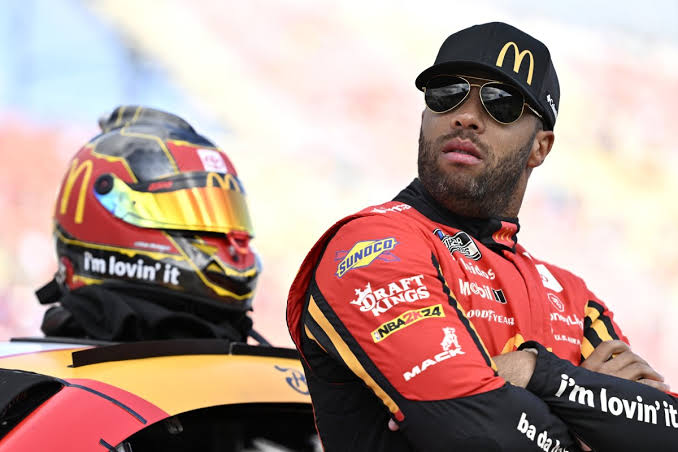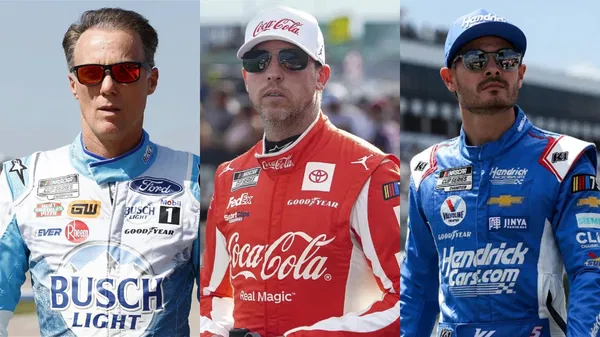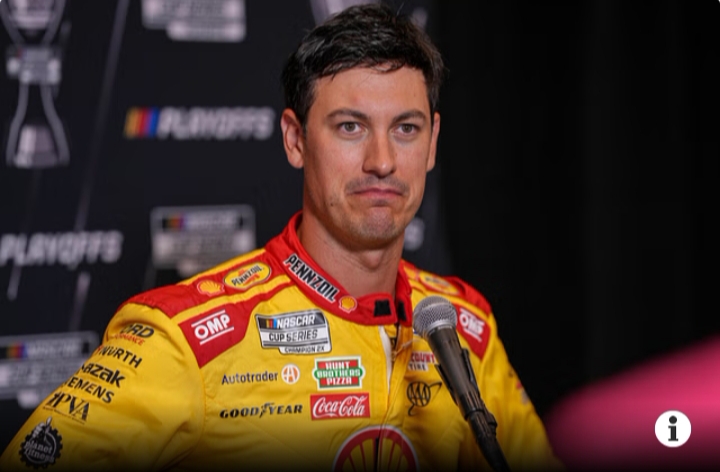The recent NASCAR Cup Series race in Michigan became yet another event this year affected by weather-related delays. Rain showers drenched the two-mile track on Sunday, causing a delayed start to the race. After the cars finally began moving, the race was halted after 51 laps due to worsening conditions, forcing it to be rescheduled for Monday. This situation has reignited the debate on why NASCAR isn’t adjusting its race start times to better accommodate inclement weather.
Dale Earnhardt Jr. addressed this issue in a recent episode of his podcast, the *Dale Jr. Download*, explaining that the reason for the fixed start times lies not with NASCAR but with the television broadcasters. According to Earnhardt Jr., the networks have the primary influence over when a race begins, as they aim to schedule the event during times that will attract the highest viewership. He elaborated, “The start times are determined by the networks, and they have a good understanding of where the race should be placed to get the best ratings. It’s as simple as that.”
This wasn’t always the case in NASCAR. In the past, when television deals were a smaller part of NASCAR’s revenue, the organization had more flexibility in scheduling races. However, the financial landscape has significantly changed, with broadcasters now contributing substantial sums of money each season. As a result, these networks have gained considerable authority over NASCAR’s scheduling decisions. Dale Jr. further emphasized this point, saying, “The networks pay enough money to have the right and authority over NASCAR when to schedule the races.”
The growing influence of broadcasters over race start times is likely to increase in the future. Even minor adjustments, such as pushing a race by 20 minutes, can become a significant challenge, especially if there are other major events scheduled at the same time. The networks are primarily focused on timing the races to maximize their benefit for advertisers and avoid conflicts with other major sporting events like the NFL and NBA.
Dale Jr. has voiced his concerns about NASCAR’s current approach to scheduling, particularly its reluctance to compete with other major sports broadcasts. From the Daytona 500 to the Chicago Street Race and now the Michigan race, multiple events in 2024 have been rescheduled due to rain. These interruptions, Dale Jr. suggests, could have been avoided if the races were originally scheduled for different times. He believes that NASCAR’s continuous avoidance of head-to-head competition with other major sports events on television may be harmful to the sport in the long run.
In his podcast, Dale Jr. posed a thought-provoking question: “Why not go up against the NFL?” He clarified that it’s not about creating a direct rivalry but rather about taking on the challenge. He argues that NASCAR needs to stop shying away from competing with the “big guy” if it wants to attract new audiences. He expressed his frustration with the idea of NASCAR consistently yielding the best time slots to the NFL and urged the sport to compete with the biggest players in the television landscape.
The conversation around this issue underscores a broader concern about the future of NASCAR in the evolving media environment. The sport’s growing reliance on television deals has clearly shifted power away from NASCAR and into the hands of broadcasters. While this has ensured a steady stream of revenue for the sport, it has also limited NASCAR’s ability to make decisions that might benefit the sport in the long term, such as scheduling races at times that are less likely to be impacted by weather.
For fans and stakeholders in the sport, this is a double-edged sword. On one hand, the financial security provided by lucrative television contracts is vital for the continued growth and success of NASCAR. On the other hand, the loss of control over race scheduling can lead to situations like the one in Michigan, where a major race is disrupted by weather, disappointing fans and potentially affecting viewership.
As NASCAR looks to the future, it faces a challenging balancing act. The sport must navigate its relationship with broadcasters carefully, ensuring that the financial benefits of television deals do not come at the expense of the sport’s integrity and the enjoyment of its fans. This might involve more creative solutions, such as negotiating more flexible start times with broadcasters or exploring new ways to manage weather-related delays without rescheduling entire races.
Moreover, Dale Jr.’s call to take on the NFL and other major sports directly could open up new opportunities for NASCAR. While it’s a risky move, competing head-to-head with the most popular sports in the country could also be a bold statement that NASCAR is ready to compete for the attention of a broader audience. This strategy could help the sport gain new viewers who might not have considered watching a race otherwise.
In conclusion, the recent weather-related delays in Michigan have highlighted a significant issue facing NASCAR: the tension between television scheduling and the practicalities of race day. Dale Earnhardt Jr.’s insights shed light on the complex dynamics at play, revealing how much control broadcasters have over when races are held. As NASCAR continues to evolve, finding a way to balance the needs of broadcasters with the realities of race day will be crucial for the sport’s future. Whether this involves taking on the NFL directly, adjusting race times more flexibly, or exploring new approaches to managing weather delays, it’s clear that NASCAR will need to adapt to remain competitive and engaging for its fans.
“Dale Earnhardt Jr. Has Been Exposed”: His Networks Pay Enough Money To Have Authority Over NASCAR




